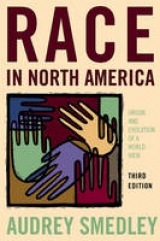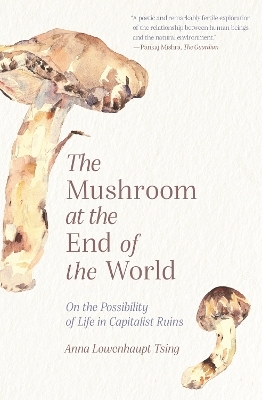
Race In North America
Westview Press Inc (Verlag)
978-0-8133-3448-6 (ISBN)
- Titel erscheint in neuer Auflage
- Artikel merken
In a sweeping work tracing the idea of race for more than three centuries, Audrey Smedley shows that race is a cultural invention that has been used variously and opportunistically since the eighteenth century. Race was not a product of science but a folk classification reflecting a new form of social stratification and a rationalization for inequality among the peoples of North America. This second edition adds new materials to some early chapters and expands its coverage of the nineteenth and twentieth centuries with additional analyses of sciences role in the preservation of race ideology through IQ tests, the rise of Nazi race ideology, and the beginning disintegration of the racial worldview after World War II. The first edition was named a 1994 Outstanding Book on Human Rights in North America by the Gustavus Myers Center. }Few topics in the Western intellectual tradition have been subjected to as much scrutiny and analysis as the topic of race. This book examines the evolution of the concept.
It shows that late-eighteenth-century North Americans came to believe that their society was composed of biologically exclusive and permanently unequal human groups, each with distinctive behavioral, moral, spiritual, and intellectual characteristics, led people to see biophysical and behavioral features as innate and immutable. In the nineteenth century, differences between whites, American Indians, and blacks were magnified in the popular mind and in scholarly writings to the point that these groups were seen as separate species, justifying the preservation of racial slavery and the subsequent dehumanization of freed blacks. With the application in the late nineteenth century of the racial worldview to European peoples and the subsequent twentieth-century inhumanity and brutality of Nazi race ideology, the concept of race came under attack. Liberal ideology coupled with advances in science prompted criticism of race and efforts to eliminate the term from the lexicon of science.In a sweeping work that traces the idea of race through three centuries of North American history, Audrey Smedley shows race to be a cultural construct used variously and opportunistically throughout time, although the scientific record shows little common agreement on its meaning.
Tracing the social and historical processes that helped shape the idea of race, Smedley argues that race was and is a folk worldview, fabricated as an existential reality out of elements of English cultural history and the conquest and enslavement of physically distinct populations. The schism between science and popular thought on race, which appeared in the mid-twentieth century, continues today. If progressive scientists no longer accept the biological idea of race, will society eventually also reject it?The second edition expands its coverage of the nineteenth and twentieth centuries, particularly in matters of IQ testing and changing racial attitudes, including the contemporary movement aimed at identifying a mixed race category in the U. S. census. Smedley further examines the economic, social, and political factors after World War II that directly or indirectly affected the publics thinking about race and discusses how the Civil Rights Movement and television during the 1950s and 1960s prompted greater attention to race and racism, causing many to rethink their beliefs and values.
The first edition was named a 1994 Outstanding Book on Human Rights in North America by the Gustavus Myers Center. }
Audrey Smedley is professor emerita of anthropology and African American studies at Virginia Commonwealth University.
IntroductionSome Theoretical ConsiderationsThe Etymology of the Term Race in the English LanguageAntecedents of the Racial WorldviewThe Growth of the English Ideology about Human Differences in AmericaThe Arrival of Africans and Descent into SlaveryComparing Slave Systems: The Significance of Racial ServitudeThe Rise of Science: Sixteenth- to Eighteenth-Century Classifications of Human DiversityLate Eighteenth-Century Thought and Crystallization of the Ideology of RaceAntislavery and the Entrenchment of a Racial WorldviewA Different Order of Being: Nineteenth-Century Science and the Ideology of RaceScience and the Growth and Expansion of Race Ideology Twentieth-Century Developments in Race IdeologyDismantling the Scientific Construction of Race: New Perspectives on Human Variation in Science Dismantling the Folk Idea of Race: Transformations of an Ideology
| Erscheint lt. Verlag | 15.10.1998 |
|---|---|
| Sprache | englisch |
| Maße | 152 x 229 mm |
| Themenwelt | Sozialwissenschaften ► Ethnologie |
| Sozialwissenschaften ► Soziologie | |
| ISBN-10 | 0-8133-3448-9 / 0813334489 |
| ISBN-13 | 978-0-8133-3448-6 / 9780813334486 |
| Zustand | Neuware |
| Haben Sie eine Frage zum Produkt? |
aus dem Bereich



